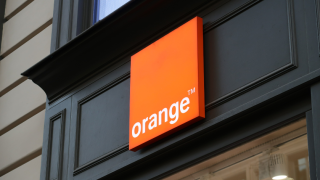Municipal broadband deployments in Chattanooga, Tennesee, and Wilson, North Carolina (EPB Broadband and Greenlight), had all petitioned the FCC to take action against a number of state laws that they argued were hindering their ability to expand, solely to the benefit of national incumbents.
The FCC used Section 706 of the Communications Act to declare portions of those laws invalid. However, Tennessee and North Carolina sued the FCC, claiming the agency was violating state rights. The FCC's effort has temporarily failed.
In a ruling, which deals the FCC, and its chairman Tom Wheeler, a heavy blow, the US Court of Appeals for the Sixth Circuit argues that the FCC's preemption of these state restrictions must be reversed, because Section 706 does not clearly provide the FCC with the proper authority to pre-empt the portions of laws that are hindering broadband competition.
"We do not question the public benefits that the FCC identifies in permitting municipalities to expand Gigabit Internet coverage," the ruling states. The ruling also makes it clear that the court did not need to debate "whether 706 provides the FCC any pre-emptive power at all," or whether Congress could imbue the FCC with such authority.
The court found that Section 706 did not give the FCC enough authority to pre-empt state law, even if, as in this case, these laws are clearly being used to protect incumbent broadband duopolies from change and competition.
Although it is not clear what path the FCC intends to take next there is no doubt that it will continue the fight to allow States to install municipal broadband and put an end to bad state protectionist broadband laws.
FCC Chairman Tom Wheeler issued the following statement on the ruling: “While we continue to review the decision, it appears to halt the promise of jobs, investment, and opportunity that community broadband has provided in Tennessee and North Carolina. In the end, I believe the Commission’s decision to champion municipal efforts highlighted the benefits of competition and the need for communities to take their broadband futures in their own hands.
"In the past 18 months, over 50 communities have taken steps to build their own bridges across the digital divide. The efforts of communities wanting better broadband should not be thwarted by the political power of those who, by protecting their monopoly, have failed to deliver acceptable service at an acceptable price.
The FCC’s mandate is to make sure that Americans have access to the best possible broadband. We will consider all our legal and policy options to remove barriers to broadband deployment wherever they exist so that all Americans can have access to 21st Century communications.
"Should states seek to repeal their anti-competitive broadband statutes, I will be happy to testify on behalf of better broadband and consumer choice. Should states seek to limit the right of people to act for better broadband, I will be happy to testify on behalf of consumer choice."
The FCC voted through his net neutrality rules and the municipal broadband decision on the same day; which he called “the proudest day of my public policy life.” The FCC's net neutrality decision was upheld by a federal appeals court, but a win on the state law pre-emption would have allowed Wheeler to make a bigger impact on boosting broadband competition in the United States.
Approximately twenty states have laws restricting the rights of cities and towns to compete against private Internet service providers. Municipal ISPs in Tennessee and North Carolina wanted to expand outside their territories but were blocked from doing so by state laws.




